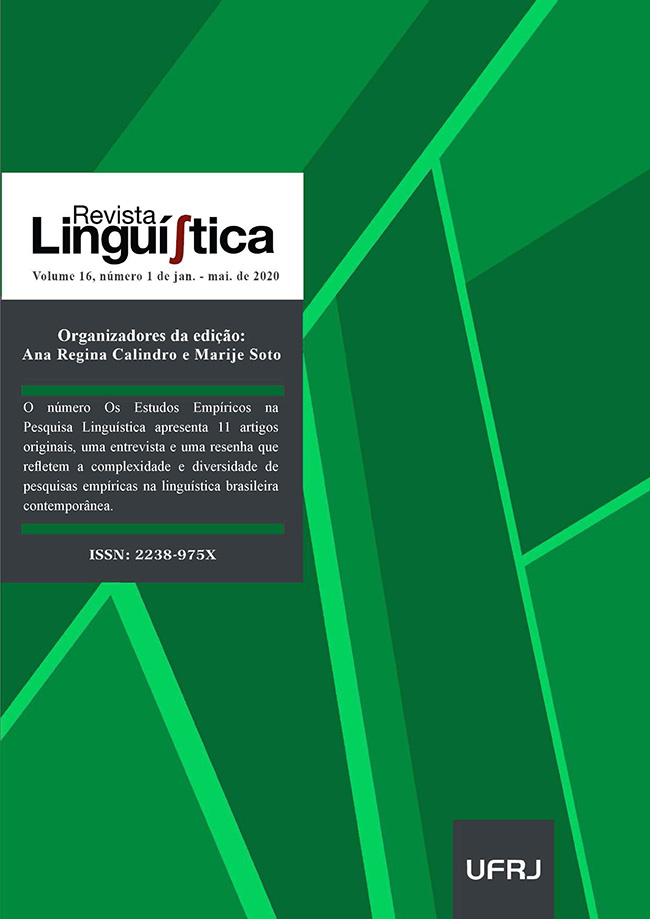Adjectival inalienable possession structures: initial notes on its acquisition in Brazilian Portuguese
DOI:
https://doi.org/10.31513/linguistica.2020.v16n1a31610Keywords:
inalienable possession, adjectives, language acquisition, generative theory, Brazilian Portuguese.Abstract
This research aims at advancing the syntactic-semantic analysis of inalienable possession structures presented in Mendes (2017, 2015), by observing Brazilian Portuguese acquisition data compared to its target grammar data. To that end we examined these constructions’ behavior when they occur in predicative and attributive structures (BARON; HERSLUND, 2001) modified by an adjective, because there seem to be, following Kayne’s work (1975) on French, some constraints that block inalienable interpretation due to the presence and/or the kind of adjective modifying the possessed noun when there is an external possessor in this kind of construction. We assume, by extending Guéron (1985) and Vergnaud & Zubizarreta (1992)'s claims about French, that Kayne’s constraints (1975) concerning adjectival possessive structures are related to their own thematic structure in Brazilian Portuguese. As regards the language acquisition process, although these constraints are not acquired, we hypothesize that inalienable interpretation is overextended, becoming restricted to the conditions licensed by the adult grammar. In order to test the working hypothesis, we advanced an experiment with three groups, two with child informants (younger and older children) and one with adult informants (control group). The results borne out the working hypothesis on the acquisition of these structures, but are not conclusive in relation to the adult Brazilian Portuguese grammar, indicating that, although not being categorical, the present case-study brings important insights on the issue.
Downloads
Published
Issue
Section
License
Authors who publish in the Revista Linguí∫tica agree with the following terms:
The authors maintain their rights, ceding to the journal the right to first publication of the article, simultaneously submitted to a Creative Commons license permitting the sharing with third-parties of published content as long as it mentions the author and its first publication in the Revista Linguí∫tica.
Authors may enter into additional agreements for the non-exclusive distribution of their published work (for example, posting in online institutional or non-profit repositories, or book chapters) so long as they acknowledge its initial publication in the Revista Linguí∫tica.

The journal Revista Linguí∫tica is published by the Post-Graduate program in Linguistics of UFRJ and employs a Creative Commons - Attribution-NonCommercial 4.0 International (CC-BY-NC).









